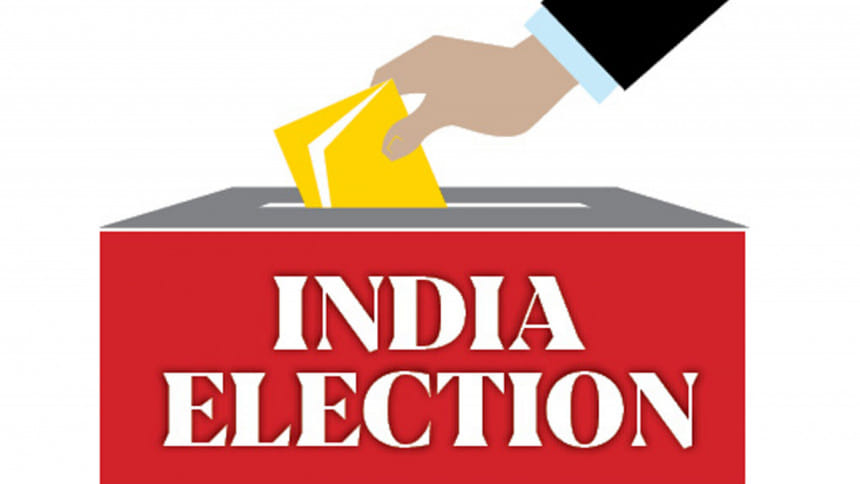World’s largest election begins

Polling booths across India was set to open today for the first leg of world's largest general election, with voting to be held in 102 constituencies across 21 states and union territories.
The first vote in the seven-phase election will be cast today, with results set for June 4, as Prime Minister Narendra Modi looks set to win a historic third term in the face of a straggling opposition challenge.
The Election Commission has to set up more than 1 million polling stations for the nearly two-month duration, with 15 million officials and security personnel fanning out for the task. Nearly 970 million voters are eligible to cast their ballot in the polls.
Constituencies in the states of Uttar Pradesh, Jammu and Kashmir, Madhya Pradesh, Rajasthan, Chhattisgarh, Bihar, Tamil Nadu, Assam, Manipur, Meghalaya, Mizoram, Tripura, and West Bengal will be among the ones to go to polls in this first phase.
The election is set to be held in seven phases, ending on June 1.
Elections will be held for 543 seats in the lower house of parliament, called the Lok Sabha, for a term of five years. To rule, a party or a coalition needs a simple majority of 272 seats. Bharatiya Janata Party (BJP) won 303 seats the last time, followed by 52 for the main opposition Indian National Congress (INC).
In addition to the contested seats, India's president can nominate up to two Anglo-Indians to the Lok Sabha.
The high-voltage campaign for the first phase of Lok Sabha polls ended on Wednesday evening as the top leaders of BJP-led National Democratic Alliance (NDA) and the opposition Indian National Developmental Inclusive Alliance (INDIA) bloc made a last-ditch effort to woo voters.
The country has more than 2,500 political parties but just 10 of them hold 86 percent of all seats in the Lok Sabha, the lower house of parliament.
Modi spearheaded BJP's campaign with whirlwind tours of several constituencies, pitching the "Modi ki guarantee" (Modi's guarantee) against the Congress's "Nyay" (social justice) planks.
Addressing an election rally in Assam's Nalbari on Wednesday, Modi explained why he is seeking a third successive term, "In 2014, Modi came to you with hope. In 2019, Modi came with trust and in 2024, Modi has come to you with a guarantee, Modi's guarantee, a guarantee of fulfilling guarantees."
With Nalbari having a sizable Muslim population, Modi said the law passed by his government criminalising triple talaq has "liberated Muslim women benefitting not only them but also their families".
BJP focused its attack on issues like corruption, dynastic politics of Congress and alleged insults to the Constitution and Hinduism while opposition leaders centred their campaign on the issue of electoral bonds, alleged misuse of probe agencies, inflation, and unemployment.
BJP's manifesto, named "Modi ki Guarantee", primarily focuses on the Uniform Civil Code and the government's welfare schemes that are meant to reach all parts of society, while bolstering its continued support to "One Nation, One Election", a proposal to synchronise all of India's state assembly elections with Lok Sabha elections on a single time frame.
Congress's manifesto, on the other hand, focuses on the five "pillars of justice", namely youth, women, farmers, workers and equity, and 25 guarantees under them.
The electoral fate of eight cabinet colleagues of Modi will be decided in the first phase of polling. They include Nitin Gadkari, Kiren Rijiju, Sanjeev Baliyan, Sarbanada Sonowal, Jitendra Singh, Bhupendra Yadav, Arjun Ram Meghwal and L Murugan.
On Wednesday, Modi wrote personalised letters to all BJP and NDA candidates contesting in the first phase of the Lok Sabha election on April 19 telling them this is not an ordinary election.
The second phase of polling for 89 seats in 13 states and union territories will be held on April 26.

 For all latest news, follow The Daily Star's Google News channel.
For all latest news, follow The Daily Star's Google News channel. 







Comments